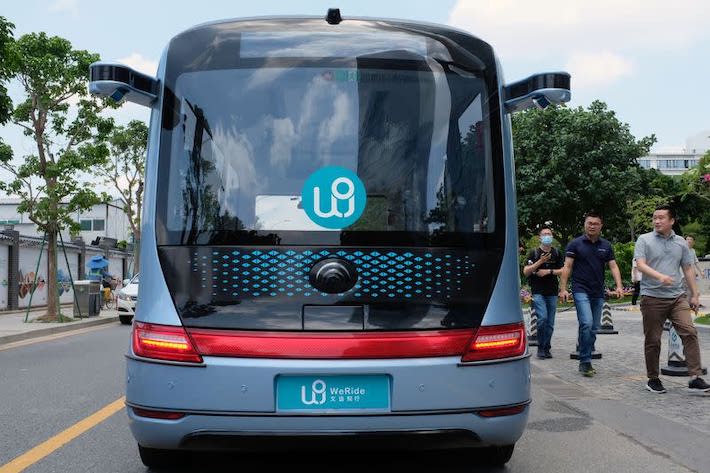Chinese self-driving startup WeRide raised more than $440 million in an initial public offering in the US on Friday that was bolstered by a private placement.
WeRide is one of a number of Chinese firms that have sought to capitalize on improving investor sentiment and an easing of regulatory roadblocks at home.
The number of Chinese companies that have pursued stock market flotations in the United States had dropped in the past few years, after ride-hailing giant Didi Global was forced to delist its shares following a backlash from Chinese regulators.
ALSO SEE: Ford CEO is Driving a Xiaomi EV And Doesn’t Want to Give it Up
Beijing has since softened its stance and released a set of rules last year to revive such listings, after the US accounting watchdog and China resolved a long-standing audit dispute in December 2022.
The US IPO market has also picked up in recent weeks with investors once again turning to tech startups that had lost favour in the past two years due to concerns around cash-burn and lofty valuations.
WeRide sold 7.74 million American depositary shares in the offering at $15.50 a piece – the lower end of its targeted range – to raise roughly $120 million. The IPO valued the company at over $4 billion.
It also raised around $320.5 million in a concurrent private placement.
The Chinese firm, known for autonomous taxis, vans, buses and street sweepers, is testing and conducting commercial pilots in 30 cities across seven countries.
WeRide said total proceeds could be as much as $458.5 million if underwriters exercise the option to purchase additional shares. It is set to start trading on the Nasdaq later on Friday.
Robotaxis still facing hurdles
Analysts and industry experts suggest that establishing robotaxi services may still take years, largely due to the need for robust safety and reliability. Still, China has been more proactive in approving trials compared to the United States.
Accidents involving autonomous vehicles, as well as the technology’s current limitations in responding to challenging scenarios – like inclement weather, complex intersections, and unpredictable pedestrian behaviour – are significant hurdles.
Meanwhile, the Biden administration is proposing a rule prohibiting Chinese software and hardware in connected and autonomous vehicles on American roads due to national security concerns.
Companies hope that as the sector matures it will transform urban transportation and mobility. EV maker Tesla also showcased a long-awaited robotaxi and robovan in October.
WeRide’s IPO follows the debut of EV maker Zeekr on the New York Stock Exchange earlier this year, the first major successful float of a China-based company since Didi’s delisting.
Another autonomous driving firm Pony AI, backed by automaker Toyota and with operations in China, also filed for a Nasdaq listing in earlier this month.
Morgan Stanley, JP Morgan and China International Capital Corp are the lead underwriters of WeRide’s IPO.
- Reuters with additional editing by Jim Pollard
ALSO SEE:
EV Shift to Have Far-Reaching Impact on Trade, Employment: IMF
BYD, Li Auto, XPeng Sell Record Numbers of EVs in September
US Likely to Ban Use of Chinese Software in Autonomous Cars
Key EV Software Must be Made in an Allied Nation: US Official
Raimondo Says Chinese EVs Are a National Security Risk For US, EU
Chinese Firms Seen Shifting Production Abroad to Avoid US Tariffs
China’s BYD to Help ‘Accelerate’ Uber’s Green Transition
Musk May Build China Data Centre for Tesla Self Driving System
China Eyes Smart EV Revolution With Tesla’s ‘Full Self-Driving’
China’s WeRide Reveals Robovan for Autonomous Parcel Deliveries
China’s WeRide heats up autonomous vehicle race
























